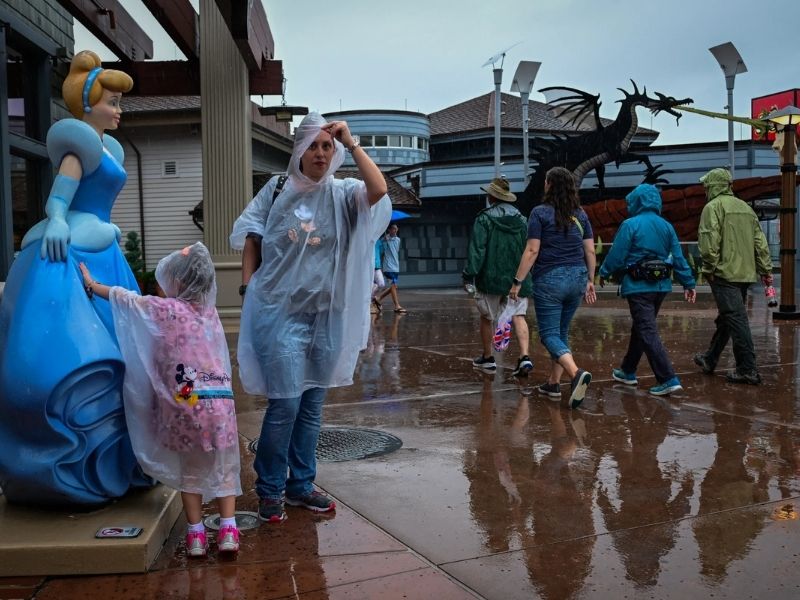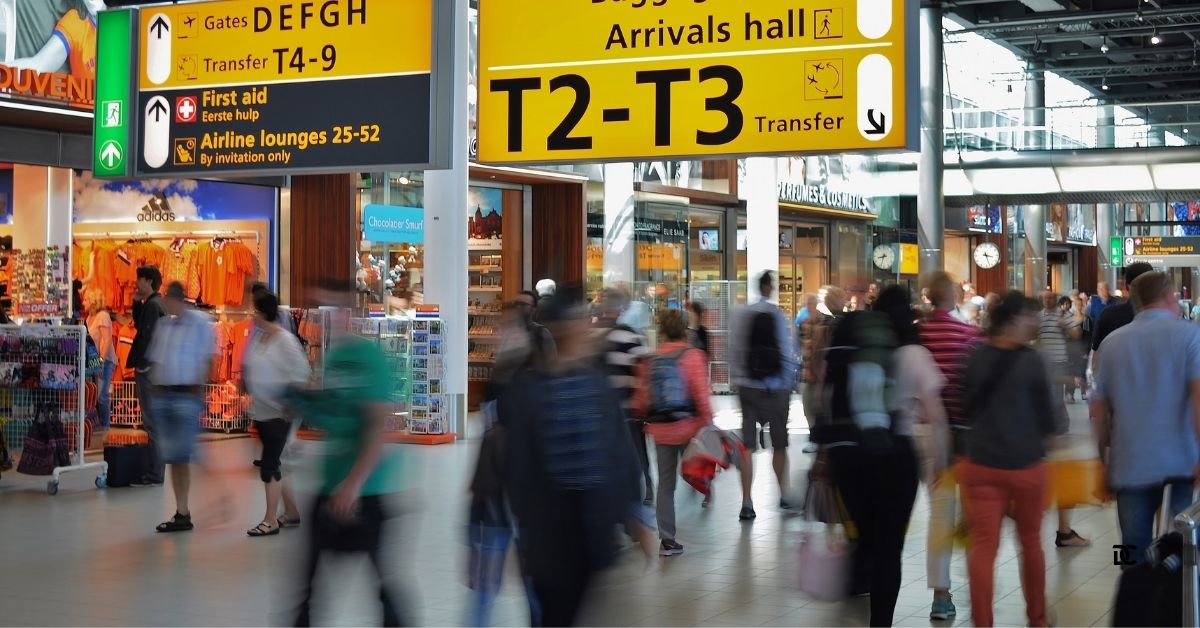As Hurricane Milton approaches Florida, the state is experiencing widespread disruptions to travel, with closures of major airports and theme parks and significant flight cancellations. If you’re planning to travel to Florida or have loved ones trying to leave, you’re likely feeling the impact of Hurricane Milton’s powerful presence. Here’s a detailed breakdown of how travel to and within Florida is being affected by this major storm and what you need to know to stay informed.
Flight Cancellations and Airport Closures
Tampa International Airport closed its doors at 9 a.m. Tuesday and has plans to reopen only when it is deemed safe to do so later in the week. Similarly, Orlando International Airport closed at 8 a.m. Wednesday, as the storm’s impact became increasingly severe. As of early Wednesday, over 1,700 flights in and out of the United States had been canceled, with an additional 350 flights delayed.
Among the airports, Orlando International was hit hardest, with 398 outgoing flights and 423 incoming flights canceled. Tampa International faced similar issues, with about 190 flights canceled each way, according to FlightAware. Airlines have made exceptions to their usual policies, allowing passengers to change their plans without having to pay a fare difference, acknowledging the unprecedented nature of the storm.
If you are one of those affected, it’s best to stay in constant communication with your airline. Many carriers have been proactive in providing support, issuing travel waivers that allow you to modify your itinerary without penalties. However, rebooking availability is subject to conditions improving and airports reopening.
Also Read
Theme Park Closures
It’s not just air travel that’s being disrupted; Florida’s world-famous theme parks have also had to adapt to the incoming storm. Walt Disney World Resort announced it would close its parks starting Wednesday morning. This move came shortly after Goldman Sachs predicted that Disney could face a nine-figure financial impact from the storm—an estimate that highlights the gravity of the situation.

Universal Orlando Resort followed suit, closing its doors at 2 p.m. EDT on Wednesday and remaining closed through Thursday. Legoland Florida Resort and SeaWorld Orlando have also announced closures for both Wednesday and Thursday and Busch Gardens Tampa is shut down through Thursday as well.
With such attractions being a major draw for travelers, the closures have undoubtedly impacted both vacation plans and local tourism. Travelers are being advised to stay updated through the parks’ websites or social media channels for further information about reopening schedules.
Highway Congestion and Evacuations
With airports closed and theme parks shutting down, many travelers are resorting to hitting the roads in an effort to leave the state or relocate to safer areas. The result? Highway congestion has increased dramatically as hundreds of thousands of residents and visitors attempt to evacuate ahead of the storm.
If you’re planning to travel by car, be aware of evacuation orders in place, particularly for Central and Western Florida, where the brunt of Hurricane Milton is expected to make landfall. Authorities are urging people not to take evacuation lightly, stressing that once the storm surge hits, the roads may become impassable, putting drivers at serious risk. Gas stations have also reported shortages in some areas, so make sure you fill up your tank as soon as possible if you need to leave.
Travel disruptions have extended to the cruise industry as well. Ports along Florida’s Gulf Coast, including those in Tampa and Port Canaveral, are either closed or operating under restrictions. Cruise lines like Royal Caribbean and Carnival have made adjustments, diverting ships to other ports or delaying sailings entirely. If you are planning a cruise, it’s crucial to stay in touch with your cruise line for the latest updates on any changes to itineraries or departure schedules.
What You Need to Do if You Have Travel Plans
For those with upcoming travel plans to Florida, here are some key things to consider as Hurricane Milton bears down:
- Stay Updated: Regularly check the status of your flight or cruise. Airline and cruise line websites will be your best source of real-time information, along with alerts from the National Weather Service.
- Know Your Rights: Many airlines are offering waivers for change fees, but it’s essential to understand what your specific airline is offering. Make sure you’ve read through the details so you know your options.
- Plan for Delays: Even if your flight or cruise hasn’t been canceled, you should still be prepared for significant delays. Airport closures and highway congestion will have ripple effects, potentially causing issues for days even after Hurricane Milton passes.
- Consider Travel Insurance: If you haven’t already, now would be an excellent time to look into travel insurance. Policies that include hurricane or weather-related coverage might help recover some costs if your travel plans are derailed.
Milton’s Travel Impact
Hurricane Milton’s impact on Florida is more than just about closed airports and canceled theme park reservations. It’s an evolving situation where disruptions continue to stack up. With Tampa and Orlando being two of the busiest airports in the state, the cancellations have created a domino effect, impacting connecting flights and airports across the country.
For those traveling within the state, conditions are expected to worsen as the storm gets closer. The National Hurricane Center has issued warnings for life-threatening storm surges, devastating winds, and widespread flooding across Central and Western Florida, emphasizing that the hurricane’s reach will extend well beyond the coastal areas.
Traveling Post-Milton: What to Expect
While the immediate focus is on surviving the storm and managing disruptions, it’s important to consider what comes next. For those needing to travel to Florida after the hurricane, it will be essential to understand the aftermath:
- Airport Reopenings: Tampa International and Orlando International are two major hubs, and their reopening will be a significant step toward returning to normalcy. However, depending on the damage sustained, reopening could take days longer than anticipated.
- Road and Highway Conditions: Flooding is expected to leave some roads impassable even after the storm has moved on. Keep an eye on local government updates regarding road conditions, and be mindful of detours and potential closures.
- Tourism and Theme Park Operations: While theme parks like Disney and Universal are accustomed to dealing with Florida’s hurricane season, the intensity of Milton means that reopening schedules might be delayed, and some attractions may need extensive repairs.
Beyond individual travel disruptions, businesses in Florida are also dealing with the brunt of Hurricane Milton. Tourism is a major economic driver for the state, and the closures of theme parks and airports mean a significant economic hit. Goldman Sachs has estimated that Walt Disney World Resort alone could face a nine-figure loss, underscoring the broader financial ramifications of the storm.
Local businesses, from hotels to restaurants, are also facing challenges. Many have had to close temporarily, and those that remain open are struggling to accommodate the surge in demand from residents and tourists seeking shelter. If you are planning on traveling to Florida post-hurricane, be mindful of the strain on local services and the challenges facing business owners.
If you have travel plans, it’s essential to stay informed, remain flexible, and prioritize safety above all else.
The aftermath of the storm will require patience. Airports will take time to reopen, roads will need to be cleared, and theme parks will assess the damage before opening their gates again. However, as Floridians have shown time and again, resilience is key. Whether you’re a visitor or a resident, staying prepared and informed is the best way to navigate these turbulent times.






